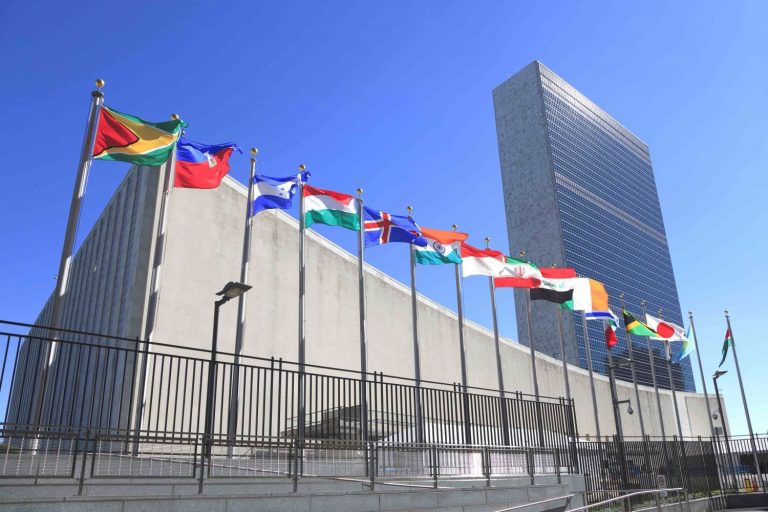25 de marzo 2021

Ortega Grants Chinese Company a Huge Mining Concession

PUBLICIDAD 1M
PUBLICIDAD 4D
PUBLICIDAD 5D
The resolution passed also condemns repression, violent attacks, repeated acts of intimidation and demands the release of political prisoners.

The United Nations Human Rights Council (UNHRC) approved on Tuesday the resolution “Promotion and Protection of Human Rights in Nicaragua.” It urges the Government of Daniel Ortega to engage in “meaningful and inclusive negotiations” with civil society and the opposition.
Additionally, it insists that by May 2021 “electoral and institutional reforms that guarantee free, fair, transparent, representative and credible,” must be instated. Last October, the Organization of American States also set the deadline for electoral reforms for May.
The UNHRC resolution was approved with 20 votes in favor, eight votes against and 18 abstentions The delegations of Mexico and Argentina that had previously abstained, this time voted in favor of the text that calls for November’s elections to comply with international standards and to “provide for the presence of independent national and international electoral observers.”
The document indicates that holding elections with reforms is the path “to find a peaceful and democratic solution to the human rights crisis in Nicaragua, as is the unfettered participation of the political opposition.” In this sense, the UN body shows its “great concern over the lack of progress by the Nicaraguan government in carrying out electoral reforms.”
The resolution constitutes a defeat for the Ortega government. It condemns the repression, the violent attacks and the repeated acts of intimidation and harassment against opposition citizens in Nicaragua.
They also request the UN High Commissioner for Human Rights, Michelle Bachelet, “to reinforce and expand the monitoring carried out by the Office of the High Commissioner and continue to report on the human rights situation in Nicaragua.”
On January 25, Bachelet urged the Ortega Government to “urgently adopt” an effective electoral reform. At the same time she called for “an end, immediately, to arbitrary detentions, undue restrictions on freedom of movement, threats and other forms of intimidation against people who participate in peaceful meetings or other political activities.”
“The Government must establish a genuine and inclusive dialogue with all sectors of society, in order to pave the way for credible, transparent and peaceful elections on November 7, regain public trust, and ensure that no one is left behind,” Bachelet insisted.
The delegate of Colombia, Alicia Arango Olmos, representing her country and all the other promoters of the resolution (Costa Rica, Brazil, Canada, Chile, Ecuador, Paraguay and Peru), emphasized that the text seeks to “contribute to the solution of the delicate situation in Nicaragua,” which as the Bachelet report indicated, “reflects zero cooperation and zero existence of a political dialogue” by the Sandinista Government.
Arango Olmos explained that the resolution requests the Nicaraguan State “to adopt measures to guarantee the validity and exercise of democracy for the Nicaraguan people.”
At the same time, she urged the Ortega Government to immediately “cooperate with international and regional human rights organizations and accept humanitarian assistance without delay.”
The resolution indicates that Bachelet is asked “to closely monitor the human rights situation in Nicaragua in the context of the electoral process and to present orally to the Human Rights Council, before the end of 2021, an updated provisional report with recommendations.”
The Austrian delegate, Elisabeth Tichy-Fisslberger, on behalf of the countries of the European Union, showed her support for the resolution and denounced the continuation of “acts of intimidation, harassment, arbitrary arrests and surveillance of political opponents, journalists and civil society in Nicaragua.”
The delegate for Nicaragua was the US sanctioned presidential adviser, Paul Oquist, who described the proposed resolution as “politicized and based on big lies that reflect the positions of the coup-mongers.”
“It constitutes an aggression against the Nicaraguan people,” added the also private secretary for national policies of the Presidency. Oquist insisted that in 2018 the Ortega Government suffered an attempted coup d’état under the slogan “He must leave now!”
Through her twitter account, Julie Chung, Undersecretary of the Western Hemisphere Affairs Office of the United States Department of State, joined the call for electoral reforms.
“We strongly support the international community’s call for significant electoral reforms to be carried out in Nicaragua before the November elections,” the official said.
The resolution expresses “great concern” about the continuous complaints of human rights violations, the constant prohibition of public demonstrations, the persistence of the disproportionate use of force by the Police to repress social protests and the commission of acts of violence by paramilitary groups.
It also indicates that UN countries have heard “complaints of constant cases of illegal detention and arbitrary imprisonment, harassment, torture and other cruel, inhuman or degrading treatment or punishment, in addition to the increase of gender-based murders and acts of sexual and gender violence during confinement.”
“We urge the Nicaraguan Government to immediately stop resorting to arbitrary detentions and confinements and release unconditionally all those detained arbitrarily or illegally,” the resolution states.
The document demands the Government to authorize peaceful and public demonstrations and to “repeal or modify legislation that may unduly restrict the rights to freedom of expression and association, to private life and to participate in public affairs.”
Archivado como:
PUBLICIDAD 3M
Periodista nicaragüense, con dos décadas de trayectoria en medios escritos y digitales. Fue editor de las publicaciones Metro, La Brújula y Revista Niú. Ganador del Grand Prize Lorenzo Natali en Derechos Humanos.
PUBLICIDAD 3D